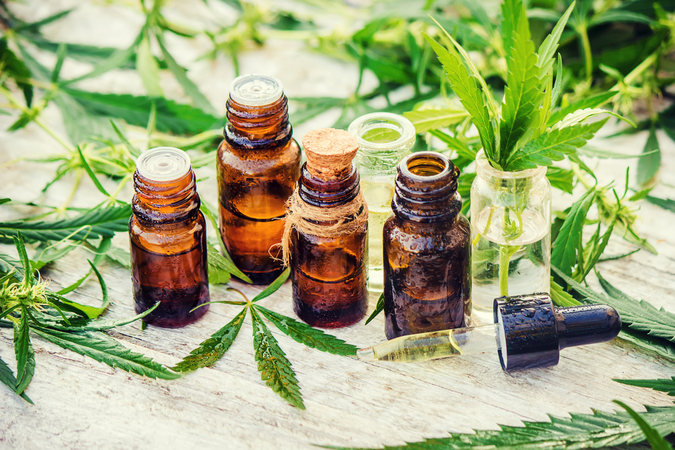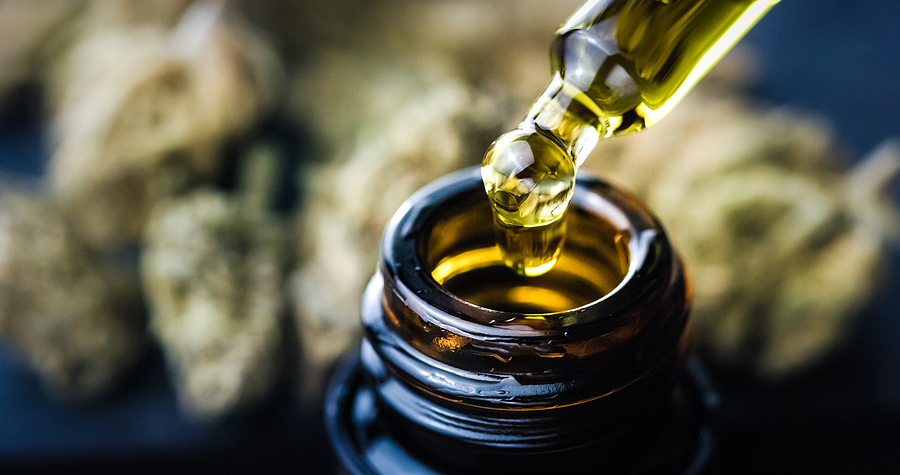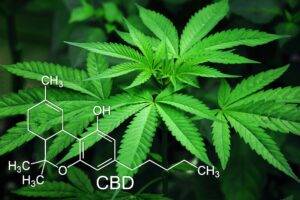What’s the difference between the three types of CBD oil—full-spectrum, broad-spectrum, and isolates? Here’s how to choose CBD wisely.
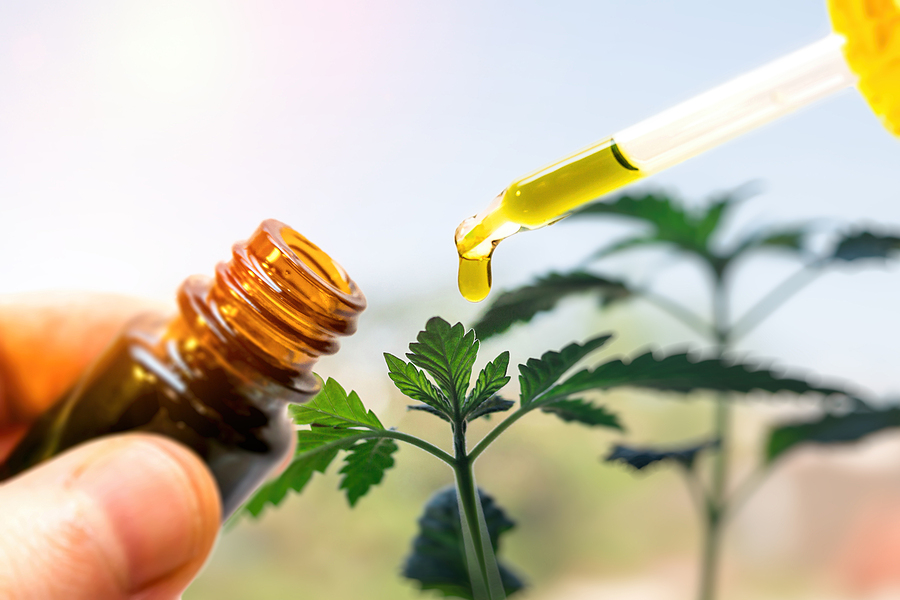
Are you trying to figure out how to choose CBD—and which formulation is best for your needs? Does the dazzling array of products and the lack of consistent information make that task seem impossible?
Trust me, I know the feeling. I spent the better part of my weekend trying to figure out the differences between full-spectrum CBD, broad-spectrum CBD, and CBD isolates.
On the surface it seemed so simple. Yet, as with most things CBD-related, the lack of clear-cut federal regulations on labeling requirements made the task more difficult. To save you a weekend of research, following is a summary of what I found about how to choose CBD.
Quick Definitions
Let’s start with some short definitions as a baseline. Then we’ll get into a few more details and formulation options for each type of CBD.
Full-Spectrum CBD
Full-spectrum CBD oil is made by extracting the oils from the aerial parts (mainly flowering heads) of CBD hemp plants. The full-spectrum of beneficial phytocannabinoids (including CBD) and terpenes that were present in the flowering heads should be present in CBD oil labeled as full-spectrum.
You May Also Enjoy:
“A No-Nonsense, Illustrated Guide to 49 Botanical Terms”
“3 Hidden Dangers of Buying CBD and 3 Simple Ways to Protect Yourself”
In other words, none of the phytocannabinoids and terpenes in the extracted oils are removed during the refining process.
Broad-Spectrum CBD
Broad-spectrum CBD oil generally has most of the good stuff found in full-spectrum CBD oil. However, there’s one big difference. Broad-spectrum CBD oil should not contain any THC because it is intentionally removed from the oil.
Rather than a full-spectrum of phytocannabinoids and terpenes, you will lose some of those during the THC removal process. But 80–90% of the original CBD oil content will remain.
CBD Isolates
CBD isolates are a nearly pure form of CBD without any of those other phytocannabinoids like THC or terpenes.
Also, isolates aren’t oil. They are in the form of a crystalline powder that can be added to things.
Coffee Analogy
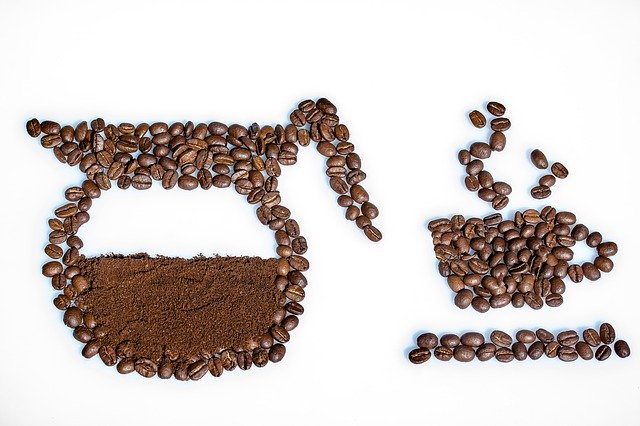
Image by Myriams-Fotos from Pixabay
To use an analogy, full-spectrum CBD is like coffee. Broad-spectrum is like decaf. And isolates are like pure caffeine shots.
All three products have useful benefits. Yet, just like a caffeine shot won’t have the same antioxidant benefits as a cup of coffee, CBD isolates won’t offer the same phytocannabinoid benefits that come from full- or broad-spectrum formulas.
Entourage Effect
One of the big reasons that full-spectrum products are often considered the “gold standard” of CBDs for medicinal use is the “entourage effect.” The theory is that CBD is more fully utilized by the body if it’s taken with a little bit of THC.
Here’s the catch. Though the entourage effect is well-documented, we don’t actually know if THC is what causes it.
You May Also Enjoy:
“5 Reasons Why CBD Is Such a Big Deal”
“A History of Kratom: Medicine, Murder, and Political Intrigue”
Researchers are beginning to identify and unravel the benefits of all sorts of other phytocannabinoids in hemp oil. Right now, there are 120+ kinds identified. But only a few have been researched. For example, Cannabigerol (CBG), another hemp compound making headlines, may also have something to do with the entourage effect.
While we don’t know exactly which hemp compounds are responsible for the entourage effect, there’s a fairly general consensus that CBD isolates aren’t as effective without all those other phytocannabinoids.
So, if you want to harness the entourage effect, focus on full-spectrum or broad-spectrum products. Of course, you still need to figure out which of those two CBD iterations is right for you.
How to Choose CBD That’s Right for You

Image by Erin Stone from Pixabay
Now comes the tricky part, remember those definitions I gave you at the start of the article? Well, there are a variety of choices to be made related to each one of them. And, each choice may impact the effectiveness of the formula.
So, read on to go beyond the quick definitions and start to make more informed decisions when it comes to how to choose CBD.
Full-Spectrum CBD
There seem to be a few ways to manufacture a CBD product that meets the full-spectrum definition.
Option 1: Dilution
The first is what I call “dilution.” Basically, crude CBD oil that has extremely high levels of CBD is refined and diluted. The dilution rates will vary depending on the CBD and THC amounts in the hemp plants harvested.
But essentially, this is like taking a strong cup of coffee and watering it down. Only, instead of coffee, you use CBD oil. And instead of water, you use a carrier agent like MCT (refined coconut oil) or alcohol. Like diluting coffee, doing this spreads the caffeine so you don’t get as much in each cup.
By popular demand, we are now offering our full-spectrum CBD oil (along with our terpene-loaded CBD oil) as part of our monthly Group Buy. This is a chance to get your high-quality CBD oil of choice … at a 27% discount + free shipping!
Yet, it also reduces the overall antioxidant benefits in each cup. In CBD, the dosage of CBD and THC are regulated. But, that also means all the non-CBD phytocannabinoids and terpenes get diluted, as well.
Option 2: Hemp oil + Isolates
Another approach to a full-spectrum product is to use full-strength hemp oil that is naturally lower in CBD as a carrier agent. Then, you can add CBD isolates to that oil to increase the milligrams of CBD in each dose.
In this scenario, the hemp oil is not diluted. So, theoretically it has more of all those other 120+ phytocannabinoids and terpenes. However, the brunt of the CBD comes from isolates. To use our coffee analogy, this is like taking a cup of decaf and adding a shot of caffeine to it.
This seems like a good idea in theory, especially if it results in higher levels of phytocannabinoids like CBG in the oil. However, there are some CBD users who say they don’t experience the same benefits using hemp oil with added isolates.
Option 3: With or Without THC
One reason that second option doesn’t work for some people could be that hemp oil with less CBD also has less THC. In fact, if the CBD is low enough, sometimes full-spectrum products made using isolates might even be THC free. So, you can also get your full-spectrum CBD with or without THC.
You May Also Enjoy:
Join Our CBD Group Buy—and Save 27% + Get Free Shipping!
Also, note that in early 2019, the company GenCanna announced that they have a strain of CBD hemp seeds that have zero THC. The seeds are only available to growers in their network. In my research, I didn’t find any CBD products marketed with no THC that did not use isolates to increase the CBD dose. But, theoretically, it may be possible to find high-dose, THC-free, full-spectrum CBD oil without added isolates.
Full-Spectrum Choices
If you are leaning toward a full-spectrum option, you may want to experiment with formulations made by both methods. You may also try the hemp + isolates option with and without THC.
Keep in mind, the legal limit for THC is 0.3%. Also, even though CBD with THC under the legal limit shouldn’t make you fail a drug test, it does happen.
Broad-Spectrum CBD
People who are concerned about the THC in CBD, but still want some phytocannabinoid and terpene benefits, often choose broad-spectrum products. Since the THC is literally removed, broad-spectrum products have a much lower risk of having psychoactive side effects from THC.
If you choose to use a broad-spectrum product, you also have a choice on how the THC is removed. There are two primary methods for removing THC from full-spectrum CBD oil.
Option 1: Fractional Distillation
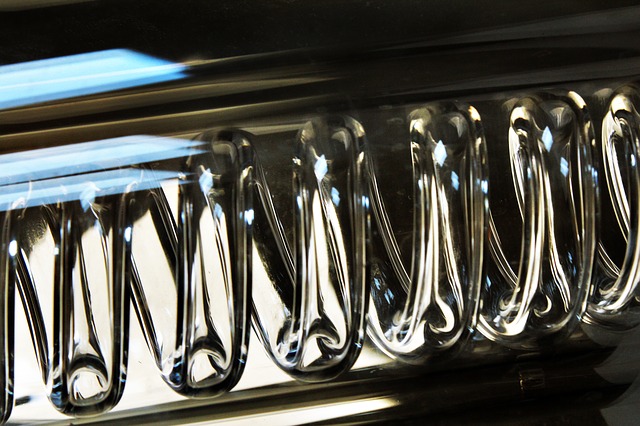
Image by Paulina101 from Pixabay
Fractional distillation can be used to separate the compounds in CBD similar to the way that ethanol is separated from methanol during alcohol-making. By controlling temperature and pressure over time, full-spectrum CBD can be distilled into individual compounds.
Once you get to the THC-compound distillation, those cuts are removed. Then the earlier distilled parts get added back to the remaining undistilled parts. The result is a THC-free broad-spectrum product.
Inevitably, some other phytocannabinoids and terpenes are lost through distillation. However, most people say 80–90% of the compounds remain.
Option 2: Chromatography
Alternatively, some manufacturers use chromatography to remove the THC. This is likely a more precise process.
It uses sophisticated technologies to isolate and then separate the THC from the CBD oil. Rather than distillation, chromatography removal involves using a binding agent to draw the THC to it. It’s kind of like using a magnet to attract metal.
I don’t fully understand the process. But I know the machines that do it are extremely expensive. I also know they require a skilled operator.
Advocates for chromatography say that it preserves more of the whole plant benefits than distillation and offers more precision. Yet, others say it’s more expensive and the benefits may not be appreciable by consumers.
Broad-Spectrum Choices
Both broad-spectrum options have merit. For example, if you love buying from smaller CBD product makers who do things more manually, fractional distillation may be your only option. If you want state-of-the-art precision THC removal, then you want chromatography removal.
You May Also Enjoy:
“15 Natural Aphrodisiacs & Simple Ways to Prepare Them”
“9 Benefits of Kratom: A Natural Alternative to Opioids and Mood Enhancers”
The main reason people use broad-spectrum products, though, is to avoid the risks associated with THC. If that’s your goal in choosing this product, then you may also want to stick to products that come with a certificate of analysis specific to the batch of CBD you are buying.
Then, read it carefully to make sure it says “THC free”!
Choices in CBD Isolates
CBD isolates are fairly straightforward. They are often made with hemp plants or parts that aren’t suitable for other formulations. You may not even know where the plants used originated. So, you don’t get a lot of choices in that production process.
Your big choice with isolates is how you want them packaged. They come in powdered form. Or, they come added to other products (such as in broad-spectrum CBD oil).
You may also need to make choices about how you use them. Especially if you buy them in powdered form, you’ll need to think about what kind of carrier agents you want to use to make isolates more bioavailable to your body.
Water, for example, is a bad choice because CBD isn’t very water-soluble. Hemp seed oil seems like it would be a natural choice. But many makers of CBD products say it’s not a good delivery method.
MCT oil, an extract of coconut oil, is reputed to have better bioavailability. As such, it is a fairly common carrier in commercial CBD products. Olive oil and palm oil are also frequently used in homemade CBD products.
CBD Formulations
Once you decide on a formulation, you still need to make a plan for how to use it. The one piece of advice that seemed consistent across my research is that our endocannabinoid receptors seem to be like muscles. They get better at receiving CBD and putting it to good use in the body when it’s used regularly.
Also, note that the FDA has updated its position to state that CBD is not GRAS (generally regarded as safe). So, make sure you understand the risks and possible side effects to watch for you before you start a new CBD regimen.
What Do You Think?
Do you have preferences on CBD formulations? Have you noted any specific benefits or drawbacks to the different manufacturing processes (e.g., distillation vs. chromatography)? If so, please share your experience with our community. We’re all learning from each other here at The Grow Network.
_________________
This is an updated version of an article that was originally published on May 5, 2020. The author may not currently be available to respond to comments, however we encourage our Community members to chime in to share their experiences and answer questions!
The Grow Network is a participant in the Amazon Services LLC Associates Program, an affiliate program designed to provide a means for our team to earn fees for recommending our favorite products! We may earn a small commission, at no additional cost to you, should you purchase an item after clicking one of our links. Thanks for supporting TGN!

The Grow Network is a global network of people who produce their own food and medicine. We’re the coolest bunch of backyard researchers on Earth! We’re constantly sharing, discovering, and working together to test new paths for sustainable living—while reconnecting with the “old ways” that are slipping away in our modern world. We value soil, water, sunlight, simplicity, sustainability, usefulness, and freedom. We strive to produce, prepare, and preserve our own food and medicine, and we hope you do, too!
